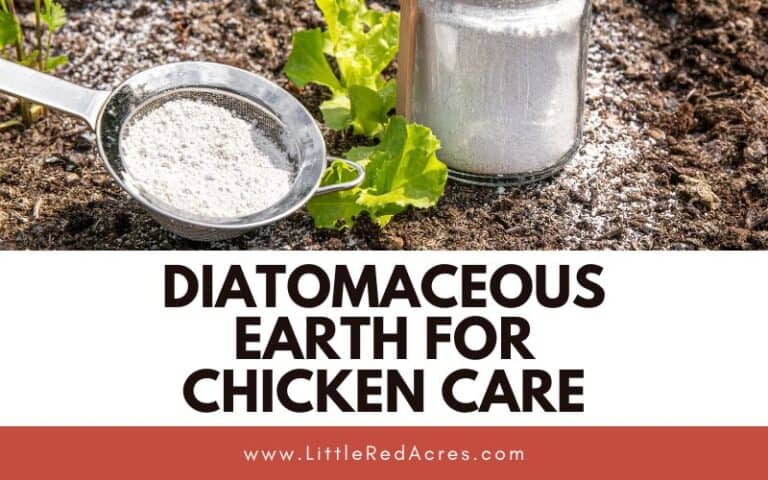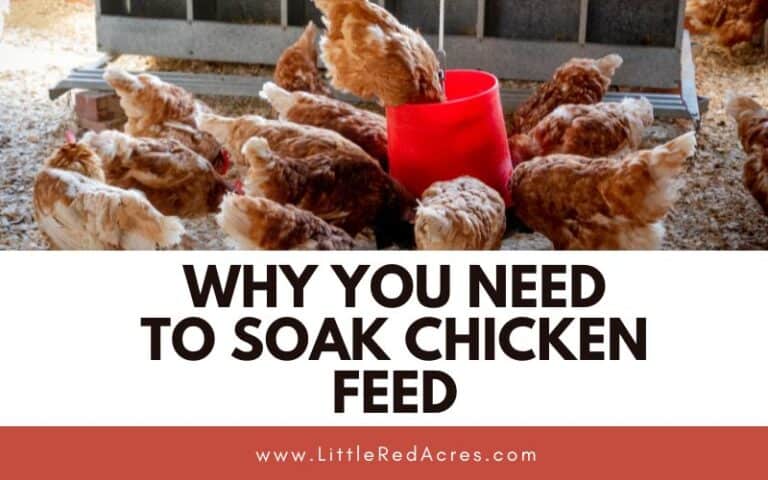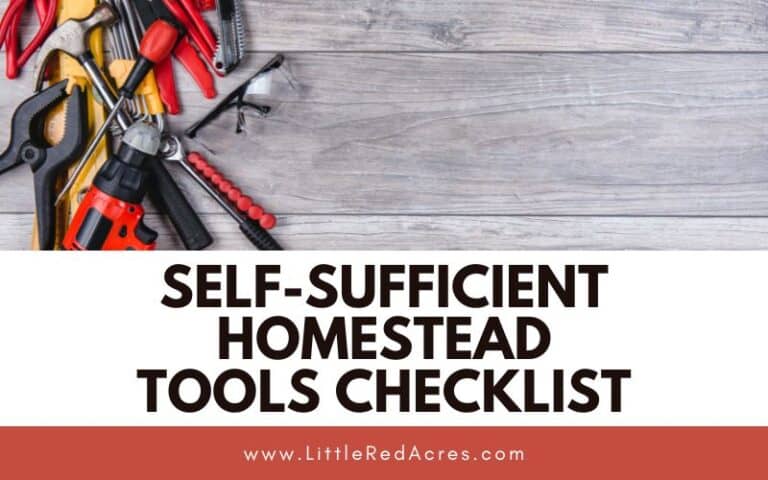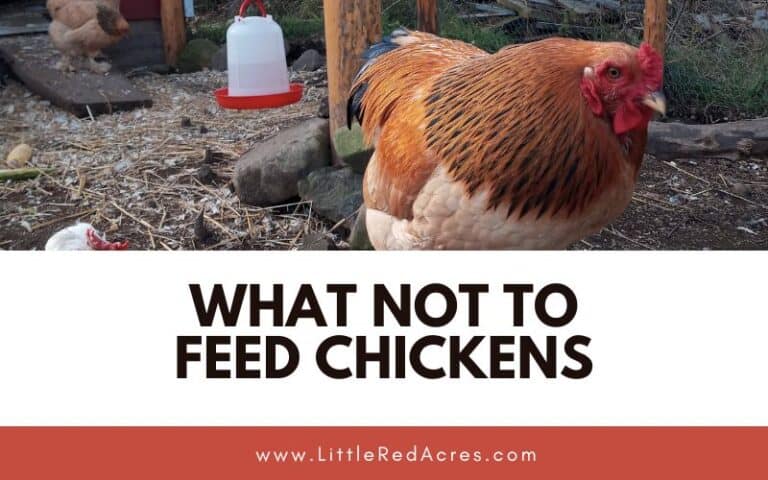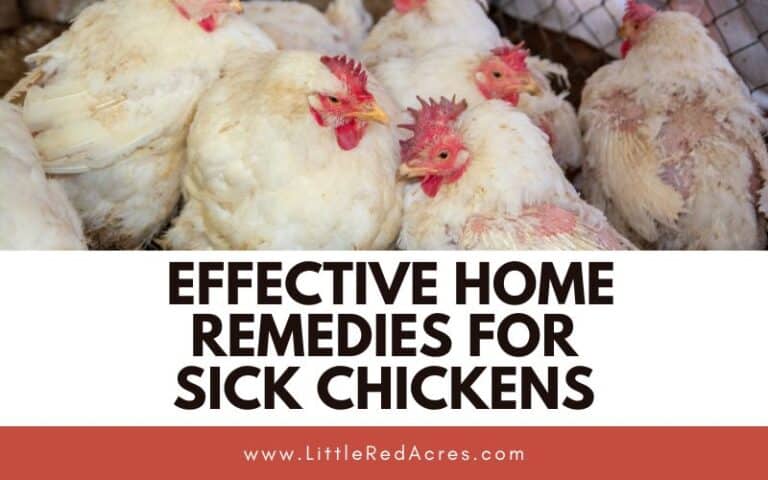Deworm Chickens Naturally: Effective Methods for Parasite Control
Inside: Learn the best ways to deworm chickens naturally. Effective methods for parasite control and healthier, happier poultry.
Deworming chickens is an essential part of keeping a healthy flock. Parasites such as worms can cause serious health issues in chickens, leading to weight loss, decreased egg production, and even death. There are ways to prevent your chickens from getting worms.
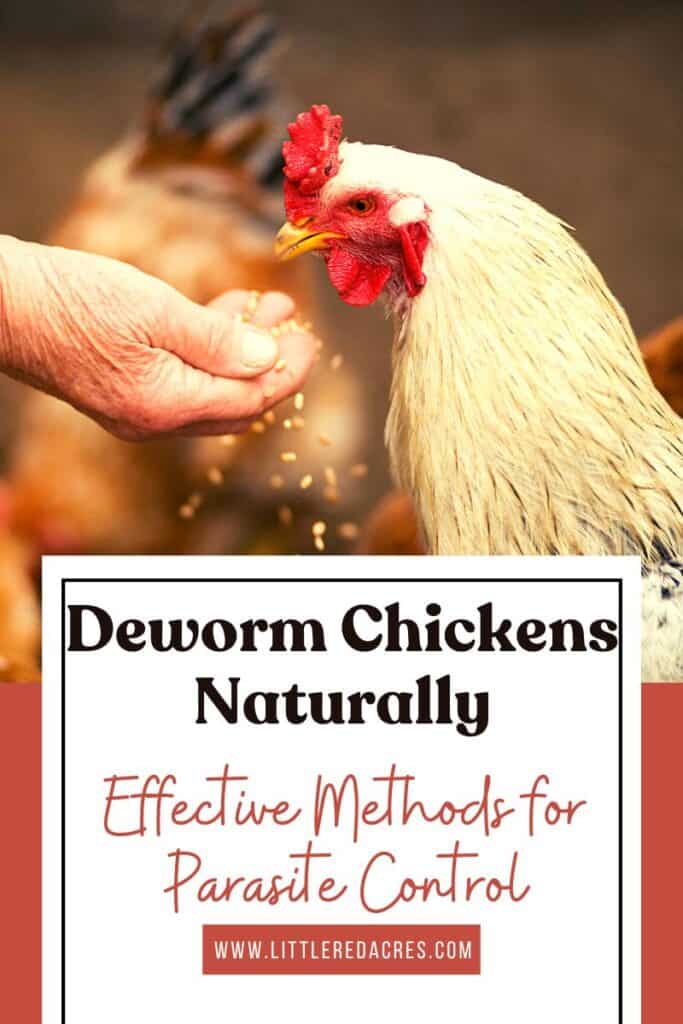
This post may contain affiliate links, see my disclosure policy for more information.
Deworm Chickens Naturally: Effective Methods for Parasite Control
While there are commercial dewormers available, many chicken owners prefer to use natural methods to avoid exposing their birds to potentially harmful chemicals and what comes along with that.
Fortunately, there are several natural remedies available that can help to deworm chickens safely and effectively. Some of the most popular natural dewormers include garlic, pumpkin seeds, and apple cider vinegar.
These ingredients can be added to your chickens' diet or water to help eliminate parasites and keep your flock healthy. It's important to note that natural remedies may not be effective for all types of worms, and severe infestations may require veterinary intervention.

Chickens are susceptible to various types of worms, including roundworms, tapeworms, capillary worms, and cecal worms. These parasites can cause serious health issues and even death if left untreated. Therefore, it is essential for chicken owners to understand the signs and symptoms of worms in chickens and how to treat them.
I am a big believer in prevention. Why not prevent a problem instead of having to treat a larger problem?
Understanding Chicken Worms
Roundworms are the most common type of worm found in chickens. They can cause weight loss, diarrhea, and a decrease in egg production.
Tapeworms are another common type of worm that can cause similar symptoms.
Capillary worms are blood-sucking worms that can cause anemia and even death in severe cases.
Cecal worms live in the ceca of the chicken and can cause diarrhea and weight loss.
The signs and symptoms of worms in chickens can vary depending on the type of worm and the severity of the infestation. Some common symptoms include weight loss, diarrhea, decreased egg production, lethargy, and pale combs and wattles. Chickens with respiratory distress may have difficulty breathing, coughing, and wheezing.
Diagnosing Worms
To diagnose worm infestations, a veterinarian can perform a fecal examination to identify the type of worm and the severity of the infestation. Once diagnosed, treatment typically involves deworming medication, which can be administered orally or added to the chicken's water source.
However, if you have your chickens in a run, you can easily see their poop, and you will see worms if your flock has worms. You probably can if you free-range as well, you just might need to look a little harder for poop.

Deworm Chickens With Medication
There are several deworming medications available in the market, including ivermectin, fenbendazole, albendazole, and safeguard. These deworming products contain active ingredients that target different types of worms in chickens. It is important to choose the right dewormer for the type of worm infection your chickens have.
It is important to follow the instructions on the deworming medication carefully to ensure that the chickens are treated properly. Overdosing or underdosing can be harmful to chickens.
You need to make sure you know if these medications cause egg withdrawals. This means that you cannot eat the eggs that your hens lay for a certain period of time, nor can you feed them back to your hens or other animals. They need to be tossed out.
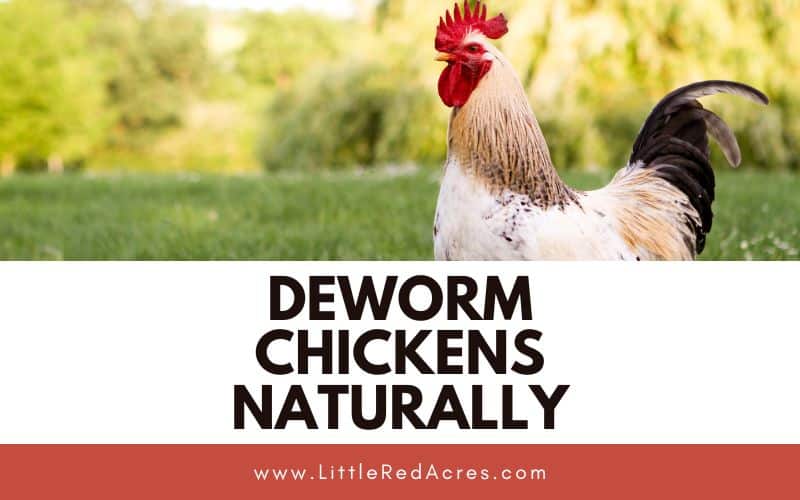
Deworm Chickens Naturally
Adding natural ingredients to chicken feed can help prevent worms in chickens. Garlic, pumpkin, and cucumber seeds are some of the ingredients that can be added to chicken feed to help prevent worm infestation. These ingredients contain cucurbitacin, which is toxic to worms.
The great thing is that come harvest time, you probably have some you can easily give to your flock as you preserve, I know our birds get a lot of cucumber seeds when I make pickles and relish.
Incorporating Herbs into Chicken Feed
Incorporating herbs into chicken feed is another effective way to prevent worm infestation. Wormwood, hyssop, elder leaves, and rue are some of the herbs that can be added to chicken feed. These herbs contain compounds that are toxic to worms.
Deworming medication and natural remedies can both be effective in treating worm infections, but it is important to choose the right treatment and follow the instructions carefully. Regular preventative care and maintaining good hygiene practices are key to caring for your flock of chickens.
Want More?
Herbs to Increase Egg Production in Chickens
Herbs to Increase Egg Production in Chickens


